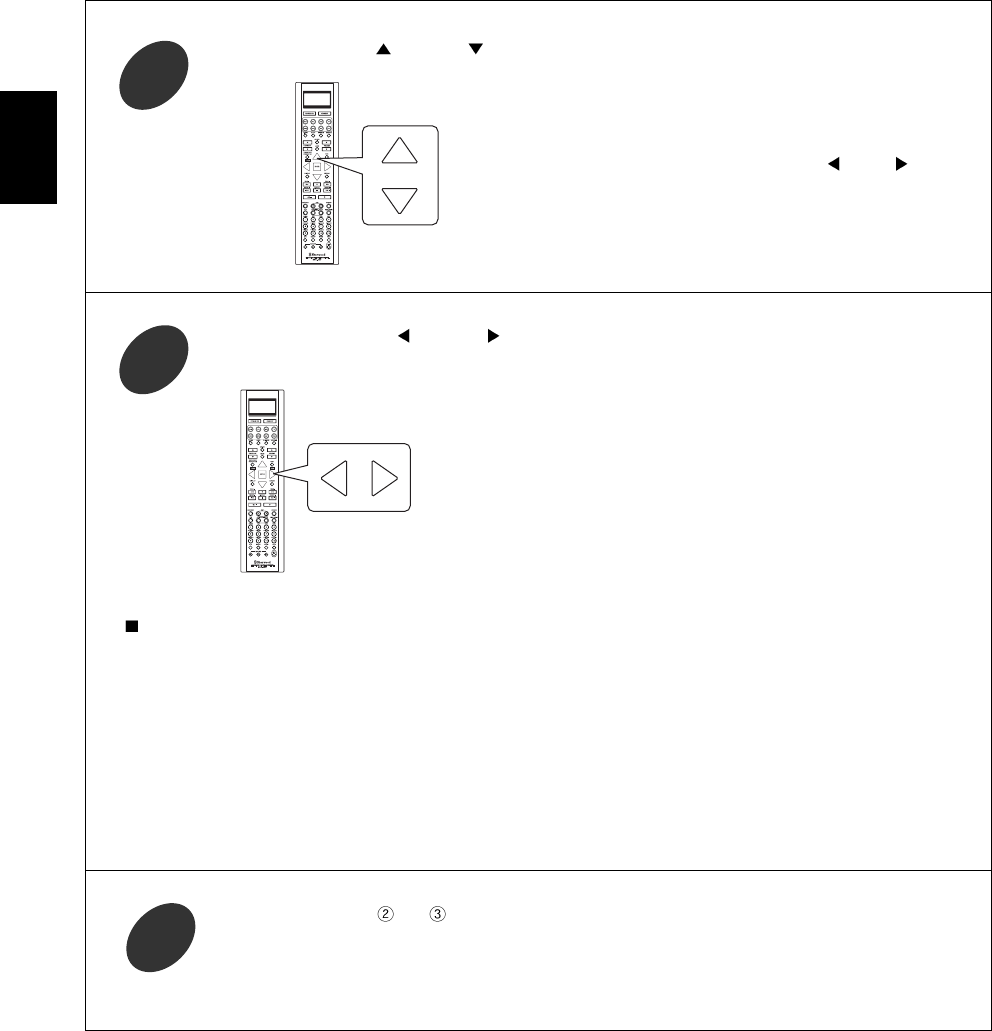
50
• Depending on your speaker type, you can select one of these following speaker types.
• Yes/No : Select the desired depending on whether a subwoofer is connected or not.
• Large : Select this when connecting speakers that can fully reproduce sounds below
crossover frequency.
• Small : Select this when connecting speakers that cannot fully reproduce sounds below
crossover frequency.When this is selected, sounds below crossover frequency
are sent to the subwoofer.
• None : Select this when no speakers are connected. When this is selected, sounds are
sent to the speakers which are not set to None.
• A/B/A+B : Select the desired depending on surround speaker connections (and whether
program source is movie or music in such a case that two sets of surround
speakers are connected).
• 2CH/1CH : Select the desired depending on the number of surround back speakers.
• Each time these buttons are pressed, “ ” and “ ” are
moved to the corresponding speaker mode.
Notes :
• When speakers are set to “Small”, you should set the CROSSOVER FREQUENCY correctly according to their low
frequency playback capacity. (Refer to “When selecting the CROSSOVER FREQUENCY” on page 54.)
• When “FRONT’ is set to “Small”, “SUBWOOFER” is automatically set to “Yes”, and when “SUBWOOFER” is set
to “No”, “FRONT” is automatically set to “Large”.
• When “FRONT” is set to “Small”, “CENTER”, “SURROUND” and “SURR. BACK” cannot be set to “Large”.
• When the power amplifier for surround back channels is assigned to “ROOM2” or the surround speakers are all set
to None, “S/B CH” is automatically set to “None”.
• When “SURR. (A)” or “SURR. (B)” is set to “Small”, “SURR. BACK” cannot be set to “Large”.
• If either “SURR. (A)” or “SURR. (B)” is set to “Small”, the output is the same as when “SURR. (A)” and “SURR.
(B)” are both set to “Small”.
Press the CURSOR UP(
)/DOWN( ) buttons to select the desired speaker.
2
Press the CURSOR LEFT( )/RIGHT( ) buttons to select the desired mode.
3
ENGLISH
Repeat the above steps and until the speakers are all set to the desired mode.
4


















